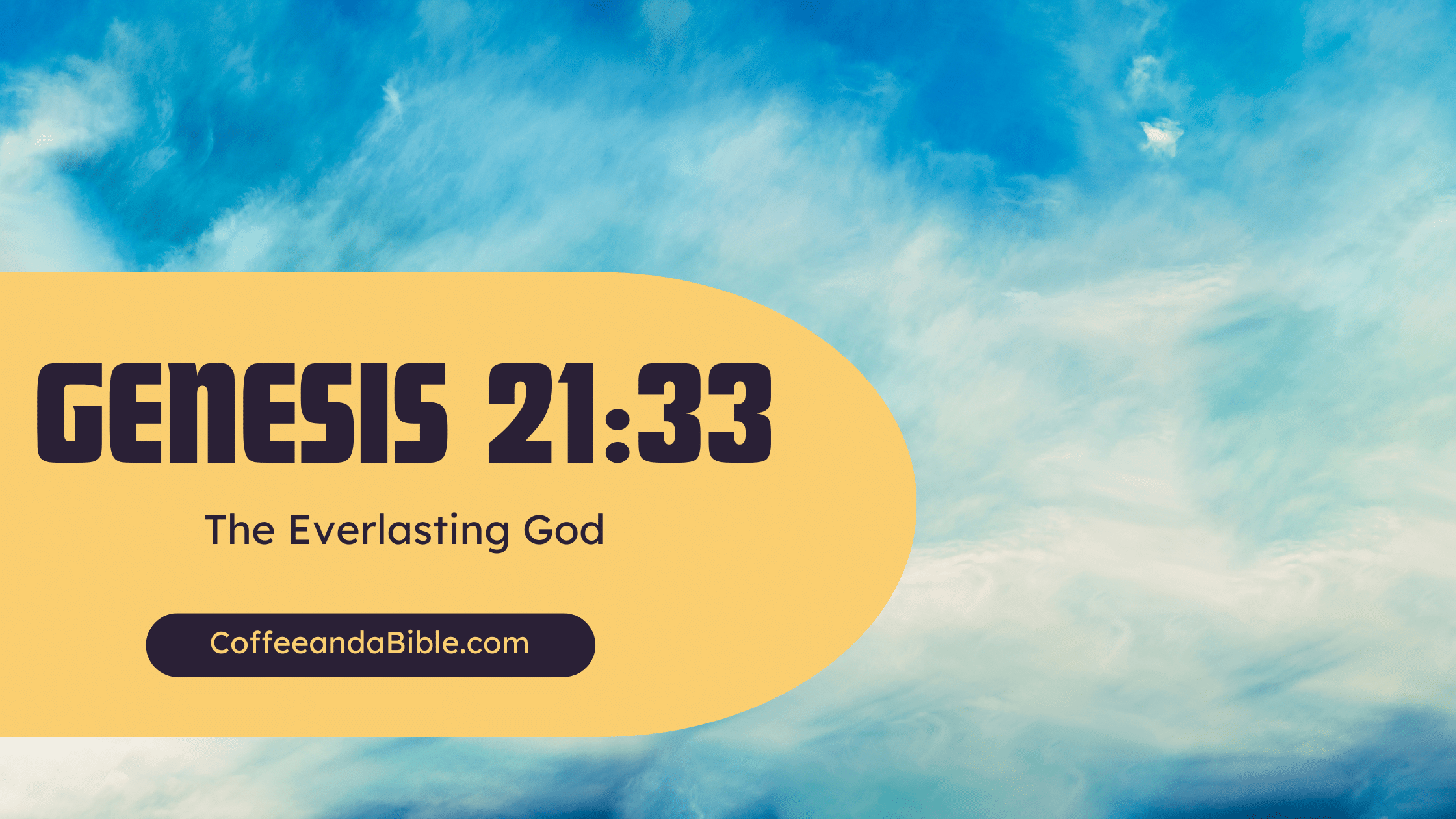It’s nearly impossible to define God.
I think it’s designed to be, though; after all, who can put the Almighty Creator of the Universe in a box? It’s why Moses was simply told to tell Pharoah that “I AM” has sent him. God can’t be contained by a single name.
It makes sense then, that as the attributes of God are unfolded throughout time to His people, they came up with different names to describe Him:
El-Shaddai – The Almighty God
El-Elyon – The Supreme God
And now, in Genesis 21:33, Abraham uses the phrase El ‘olam, which means “the Everlasting God.”
What in Abraham’s life could’ve prompted him to make that specific statement about God?
God is the Same Yesterday, Today, and Forever
The eternal nature of God is so ingrained into our minds as Christians that we almost take it for granted. We assume that the God that we pray to today is the same as the One that every person in Scripture — and all of God’s people throughout time — have prayed to as well.
That’s kinda the point. Because God doesn’t change, we know that how God responded to certain things thousands of years ago is probably how He’s going to respond today. When we see God’s reaction to events in Scripture, we can learn from that and apply it to our own lives as to how He would react to our lives.
Abraham recognized that in his own time. The promises that God made in chapter 12 are being fulfilled (in part) before his very eyes. His son has been born, he’s been given land, his name is increasing — all of these are testaments to God’s continuing presence and unchanging nature. If He promises something, He fulfills it. He doesn’t “change His mind” as people do.
Jesus Christ is the Same Yesterday, Today, and Forever
It’s impossible to talk about this aspect of Jehovah without talking about a similar statement made in Hebrews 13:8: “Jesus Christ is the same yesterday, today, and forever.”
A lot of people will look at that and say that Jesus’ nature doesn’t change. That’s true, but it’s not what the context is saying.
If you read Hebrews 10-12, you come away with the understanding that faith in God is what is going to keep us through times of persecution.
But in Hebrews 13:7, the Hebrew writer challenges us to look at the people of old and “imitate their faith.” Then, in Hebrews 13:8, he tells us that “Jesus Christ is the same yesterday, today, and forever.”
The message is clear. If God doled out punishments to those who were unfaithful, we can accurately conclude He’s going to do the same to us.
Likewise, if God saved those who persevered through the fire and maintained a faithful obedience, He would do the same for us. The reliability of God’s character is a source of strength for us.
Abraham recognized that in his day, which is why he called Jehovah “the Everlasting God.”
May we recognize that in our day as well.
